A strange phenomenon occurs as we move slowly through life'memories drift into nostalgic set pieces, neatly summarized by songs, events, catch phrases, movies and television shows. Certain images become clear, crystallized by time, while others fall away, buried in our pop-culture subconscious.
Bodybuilding, too, can be characterized by eras: Larry Scott's boy-next-door dominance, Arnold's 'Pumping Iron' universe, the emergence of Lee Haney in a sport suddenly punch-drunk on mass. Each decade has its players, its princes, princesses and paupers. We recall personality clashes and bitter feuds, triumphs and tragedies, faces, physiques, snippets of conversation, outrageous epithets and monologues.
Think of the 1990s. What names and faces come to mind? Dorian Yates, for sure. Lee Labrada, Flex Wheeler, Kevin Levrone, Porter Cotrell, Shawn Ray, a young Jay Cutler. They grinned at us from the covers of the muscle magazines. Writers expounded on their lifestyles, training methods, philosophies and temperaments. We knew them, not as living, breathing creatures but as muscle gods.
Lee Labrada proved the solitary exception: His physique was within our mortal grasp, or at least our comprehension. True, not a lot of people had the constitution to 'go for it,' but Lee wrote a whole new chapter, where muscle and aesthetics met on the same page. He captivated through example. And really, who among us could resist such an electrifying image?
He represented all that was good about bodybuilding. Dorian may have worn the Olympia crown, but Lee, well, Lee had a lock on our hearts. There was nothing false or pretentious about him. Some have the gift of gab, an inherent ability to press the flesh and win over complete strangers'even their enemies give them grudging respect. We associate it most with politicians, but Lee comes by that quality quite naturally, thank you. Blended with all the other Labrada attributes, it spells legend.
Since leaving the contest stage, Lee has forged another path, as CEO of his own company, Labrada Nutrition. Believe me, five minutes with the man and you'll be investing in meal-replacement bars and joining a gym!
What you're about to read is an intimate t'te-'-t'te with a man who appreciates life. If you've known him only as a champion bodybuilder, hold onto your hats.
IM: You seemed genuinely taken aback when I called about this Legends profile. There aren't too many modern-day bodybuilders I'd consider legends, but Lee Labrada is definitely one.
LL: Well, legend is a word that I don't take lightly. I prefer to think of myself as a bodybuilder who went as far as he could and had an absolute blast in the process.
IM: Whenever I interview a legend for this series, we examine younger days, early influences, adverse experiences and the soaring highs only greatness can bring. Your first few years were spent in Cuba during the rise of Fidel Castro. Any strong memories?
LL: Several. I was born in Havana on March 8, 1960, an emotionally charged time. About 1962, after Castro had solidified his power, he began allying himself with Communists. My dad said, 'We gotta get outta Havana!' All the paperwork had been done, but Castro didn't want a mass exodus. That would've made him look bad. Several psychological impediments were thrown up to prevent people from leaving. My father was an engineer, the first college-educated person in his family. The country needed engineers, and he'd done well for himself. Then everything was taken away from us, except the clothes on our backs and what we could pack into a small suitcase.
IM: Sounds almost like an earlier version of the Elian Gonzalez story.
LL: Oh, I didn't have it as tough as that poor kid! Can you imagine floating in the Atlantic, all alone? And for days? I shudder to think of it. When I came over to America, I was two years old and accompanied by my grandmother. We settled in Chicago, with my Aunt Hope, who became a second mother to me.
IM: How long were you separated from your parents?
LL: Almost an entire year'a long time for any child. Eventually, my parents made it over, and Dad landed a job as an engineer. We'd developed a work ethic and did whatever we could to succeed. This was the land of opportunity, where you could pursue the American dream. If you worked hard, if you worked smart, you could do anything and be anything. That was imprinted upon me at a tender age, and I still wholeheartedly believe it.
ALLIM: What was it like for young Lee, a stranger in a strange land?
LL: I was naturally shy and introspective but well accepted by my friends and classmates. Not a big kid, but fairly muscular, agile and intellectually inclined. I spoke Spanish, English and a little German, but our predominant language in the family was Spanish. We lived in a duplex next to a German family, and I used to play with their son. One day I started spitting out all these German words. This tiny Cuban kid speaking German, can you imagine?
IM: What drew you to weight training? Who inspired you?
LL: My father inspired me. He'd lift with a 110-pound barbell set, and I'd watch, fascinated. My Aunt Hope would take me to Lake Michigan, and I'd walk down the beach, sticking out my ribs and holding my breath, pretending I was Steve Reeves. I thought all the people would stare at me because I looked so muscular! They were probably thinking I was sick, what with all those ribs sticking though my skin! [Laughs]
IM: I did the same thing. As a boy I'd often dream about looking like Larry Scott.
LL: For me it was Steve Reeves and Dave Draper, whom I saw in the Weider ads. At 13 I tried lifting Dad's weights and liked the way it made my arms feel, as if something real was going on, something positive.
IM: That helped you in your next pursuit: football.
LL: Yes. Tom Calahan, a high school chum, and I would lift every day in his basement. We didn't know what we were doing. I had an Old World diet, lots of meat and potatoes'three square'and as you know, a good bodybuilding diet is very technical, very sophisticated. You have to pay close attention to improve your physique. If your diet is good, you grow. If it's off, you lose muscle mass.
IM: What kind of gains did you make?
LL: Slight ones. We didn't see much in the way of mass, but strengthwise, we were improving.
IM: Football acclimated you to weight training and its disciplines, but what pushed you over the edge into bodybuilding?
LL: I sustained a football injury when I was 17, a sprain to the lower back, and they took me out for the season. In recovery I started lifting more and more and saw surprising results'enough to trigger a few exciting ideas.
IM: About competition?
LL: That's right. We'd moved to Florida in 1971, home of the AAU Mr. Jacksonville competition. I trained for six weeks in the spring of '78 with that contest motivating me. Don Bailey was my first serious training partner. He still owns the Powerhouse Gyms in Jacksonville. Anyway, we'd train every day after school. Once I got a handle on the split system, things started to roll.
IM: Your first contest. I love hearing this stuff!
LL: I showed up for the contest, saw the competitors and almost went home. These guys, even as teens, had legs that looked like mail sacks were hanging off them! They outweighed me easily by 20 to 50 pounds! I thought, What the hell am I doing here? This is nuts! Dejected, I took off my sweats, and you could've heard a pin drop. People were just staring at me, glassy-eyed, because, for one thing, I was so shredded. My skin looked like cigarette paper. And guess what! I ended up beating out contestants who were considerably bigger than me. Not only did I win the Overall, but I got the Most Muscular award too! I attributed that to genetics and structure.
IM: You were still in school, right? How were things going, academically?
LL: Academics always came pretty easily for me. My parents placed a premium on excellence, and I was an A student. In 1978 I graduated from high school and fielded two scholarship offers'Northwestern University and Cornell. I went to Northwestern to study civil engineering.
IM: Where another chapter of your bodybuilding history would be written.
LL: That's right. It was my first full year away from home. I lived with my Aunt Fina in Chicago and commuted to school. Well, I was taking a Spanish course with a lot of intelligent-looking people, and across from me I could see another big guy, and we were checking each other out. I had a somewhat cocky demeanor, and so did he. Later, I met the same guy by accident at Patton Gym, which is where the Northwestern weight room is located. We talked, he introduced himself, and we became fast friends. That was Tom Deters.
IM: Tom Deters, of Muscle & Fitness?
LL: One and the same. We trained all that first year of college together. Tom was even my best man, years later!
IM: You weren't training for competition?
LL: No, not quite yet. I realized I didn't have an ice cube's chance in hell of winning an open contest. I just wasn't massive enough. But I've always loved bodybuilding for what it gives me personally, and that doesn't always include competition. I trained hard for four years, from the time I was 18 until 22, before competing again. I lived, breathed and slept bodybuilding.
IM: What were your workouts like?
LL: Ah, the workouts I had with Deters at N.U.! I wouldn't put a dog through those. They were some of the most intense of my life. They taught me how to go to the depths of pain in order to create a physique with monster muscle. We were proponents of Mentzer's Heavy Duty System. We did six sets per bodypart. I remember doing leg presses on an archaic wooden leg press. Deters and I would pile it up with hundreds of pounds of weight, close to 1,000. We'd superset leg extensions with those weights!
One day Deters came in and did his second set of supersets, and he got a blank look on his face. His eyelashes started fluttering, and boom, he hit the floor, unconscious! That's the kind of intensity I mean. Ferocious, white-hot'an all-out, do-or-die effort. And it worked. During those four years I put on 40 pounds of solid muscle.
IM: How were you able to juggle academics and the gym?
LL: I learned to balance both, though it was a struggle. At Northwestern I was an obsessive gym rat, but I paid the price. Academically, I started slipping to a C average, and Dad laid it out for me: If I didn't get my butt in gear and earn that degree, I'd have to go to work. Well, I found a way to do everything and do it well. Part of that was living an incredibly spartan lifestyle! My family was in Houston by then, so I transferred to the University of Houston and finished my civil engineering degree there.
IM: People were now recognizing you as more than just a dude with muscles.
LL: Yeah. It became kind of a running joke. I was the incredible growing kid, and guys at my gym thought I took steroids. I'd started training at Hank's Gym in Houston, home to all the great Texas bodybuilders, like Billy Arlen, Doug Beaver, Lawrence Story and a number of others. A real hardcore place. That was 1982, the same year I ventured into my first Open bodybuilding contest.
IM: The NPC Junior Gulf Coast Championships?
LL: You got it. There was a Junior class, an Open class and the Collegiate Mr. Texas, all held that same evening. I wanted to be Collegiate Mr. Texas. I dieted down and showed up ready. Backstage I took off my warmups, and the competitors all looked me over like a new car. There were about a dozen of us altogether. When the judges saw me, their mouths dropped, and I wondered, Why were they staring?
IM: They probably couldn't figure out if you were real or an illusion!
LL: Ha! Maybe. After the compulsories I had judges running backstage, wanting to know who I was, where I'd come from. Some of them told me I should enter the Open class instead of the Junior, but I've always valued a methodical approach and didn't think I was ready. Others encouraged me to enter the USA Championships, and I'm saying, no, no, just Mr. Texas.
Methodical goes hand in hand with intuition. I won both the Collegiate Mr. Texas and the Junior Gulf Coast that evening. The trophies were bigger than me, and I was tickled pink. Three months later I won my class at the Texas Cup, in Austin, and the Mr. Texas, held in Houston.
IM: Something cosmic was swirling around you.
LL: Word spread, and I began developing notoriety on the Texas circuit. In 1983 I decided to train for only one contest: the NPC Mr. Texas'but I planned to make it memorable. I won the Overall and set my sights on 1984. I wanted to break into the national scene at the '84 USA Championships, where I'd enter as a Middleweight. Then, disaster!
IM: Whoa! What happened?
LL: The night before, I drank fruit juice to fill the glycogen stores in my depleted muscles. That's what bodybuilders commonly call carbing up. My body started to bloat! I held a film of water and didn't know why. By the time I'd stopped drinking, I realized it was a mistake. You do not want to carb up on juice!
Unfortunately, I came in at 178 pounds, a pound and a half too heavy for the Middleweights. Phil Williams was my major competition in the Light Heavyweights, and we battled it out for the class. He beat me by a few points and went on to win the Overall. If I hadn't made that mistake, I might've taken the gold.
I set my sights on the NPC Nationals in New Orleans, and I vowed to be ready. That would be my first trip to the rodeo, so to speak. Contest time, I saw who I was up against. The Nationals is one of the most exciting contests to watch; the guys are top quality, all state champs, conditioned and in awesome shape. I was backstage with Rich Gaspari, John Hnatyschak, Ron Love, Mike Christian'a slew of fantastic bodybuilders. I competed in the Middleweight class and placed fifth, which disappointed me. John Hnatyschak won the class. Mike Christian won the Overall.
IM: An excellent opportunity for introspection.
LL: It was a crossroads moment. I trudged back to my hotel room, completely dejected. What was my future going to be? Where would I go from there? I honestly didn't know.
IM: Every champ reaches an impasse, where reality and fantasy meet. What defines them is the choice they make at that decisive moment.
LL: I agree. And I decided to not walk away from competitive bodybuilding without giving it everything I had.
IM: The launch of your bodybuilding career was right around the corner, in 1985.
LL: That's a special year to me; that's when I met my wife, Robin'during precontest training for the NPC Nationals. I was working as an engineer, designing high-voltage transmission structures, and at night I'd be in the gym, banging the weights with my good friend Stoney Grimes, an up-and-coming national competitor.
IM: The '85 Nationals was a make-or-break situation.
LL: My focus was sharp, and I'd meticulously planned out everything. I arrived in Miami and smacked up against a fabulous Middleweight named Jon Aranita, Rory Leidelmeyer's training partner. It turned into a free-for-all between Jon and myself. Winners of the different classes would automatically be chosen for the U.S. team, to go to the IFBB Mr. Universe [World Amateur Bodybuilding Championships]. I wanted to win in the worst way. I wanted to win the Nationals and go on to the Mr. Universe and become an IFBB pro. I knew I could do it too!
IM: And you took the show.
LL: Yeah, I won! That evening, before awards were given, Jim Manion stopped by, smiled and asked, 'Do you have your U.S. passport?' I grinned back and said, 'Yes, sir!' Two weeks pass, I'm in G'teborg, Sweden, the first time I've ever traveled abroad, the first time I've ever been in Europe, and I'm competing in the IFBB Mr. Universe contest! Robin wanted to go, but we didn't know how to swing it'I had no money, so I put her ticket on a credit card. She asked for time off from her job as a waitress, and they said, 'We're too busy. If you leave, you'll lose your job.' You want to know what she did? Up and quit!
IM: Ah, the power of love. What were your impressions of G'teborg?
LL: It was like a convening of the United Nations. I'd been used to competing against Americans, but this was an international stage'a novel experience for me. Photographers from all the major magazines were snapping away, guys like John Balik, Bob Kennedy, Ove Rytter, Mike Neveux, all the big names. Wild!
IM: Had you adjusted your diet any?
LL: I was doing sodium loading, coming in at 10,000 milligrams per day, and drinking copious amounts of water, at least one gallon per day. Seventy-two hours before the show I stopped the sodium, kept on drinking, and my body dried out. Deters helped me put that program together. He's very up on all the physiological processes of the body. Sodium loading worked like a charm for me that year.
IM: I take it you were consuming pure spring water.
LL: Actually, I was drinking distilled water, which'in retrospect'I don't recommend because it flattens out your muscles. Being an obsessive person, I figured I'd be overseas for five days, so I bought 10 gallons of distilled water and put them in a suitcase. Water weighs about 14 pounds a gallon. My suitcase weighed as much as a 140-pound person! Customs wanted to know if I was smuggling in a dead body! Half the bottles broke and leaked out'what a mess. When we got to Sweden, I needed more distilled water, but it was only sold in pharmacies'and in small bottles.
IM: None of it mattered, because you and your team kicked ass!
LL: Yeah! I won the Middleweights, Phil Williams took second in his class, and Ron Love won the Heavyweights. We also brought home the Team presentation. As captain I couldn't have been happier.
Robin and I went back to our hotel room and could barely contain ourselves. We jumped up and down on the bed, laughing'I'd just earned my ticket into the pros!
IM: I've interviewed dozens of amateurs who are constantly chasing that pro card. They keep sluggin' away, but the brass ring plays hard to get.
LL: Seriously, if they've been trying for years, odds are they won't succeed. If you were to go backstage at the Olympia and study those physiques, there are certain aspects to the builds you won't find anywhere else. It's what I call the look of a pro. They have larger bone structures, their physiques are more symmetrical and balanced, they possess an almost superhuman quality. I'm talking small joints, full muscle bellies, minimal flaws. At the national level I can tell you within five minutes who'll win their class. At the end of an Overall I can tell who'll be a pro and who won't. I've seen competitors with less-than-perfect genetics excel, just as I've seen others with tremendous genetics take the other path, toward obscurity.
IM: And the judges often get blamed.
LL: Any competitor who blames the judging panel will never make it! If you relinquish personal responsibility, you're not looking within. Judges aren't perfect, but they're pretty damned close 95 percent of the time. To think otherwise is just delusional. I always took the internal perspective. I'd talk to each and every judge after a show and ask them how I could improve. Then I'd work my tail off'and improve!
IM: Did your life change much after the Universe?
LL: I flew back to New York with about 20 bucks in my pocket. Careerwise, I was on top'Mr. Universe'and I'd met Joe Weider in Sweden, but I needed to make things happen. A lot of people who win a pro contest think the phone will magically start ringing. It doesn't.
I called Joe in November 1985. Joe's always been very much of a father figure, and I asked him if I could come to L.A. and have photos taken. He arranged it all. The next week I was in L.A., doing a photo shoot for Muscle & Fitness.
IM: Which led to more than 100 covers worldwide.
LL: The IFBB Mr. Universe and pro card put me into the professional-bodybuilding arena, and now I had to produce. I had to prove myself as a pro. Publicity, marketing yourself effectively'it's what every bodybuilder should learn to do. Magazine coverage generates popularity, and popularity makes for more coverage. That affected the number of endorsement contracts I got, the requests for seminars and appearances.
IM: And all the while you're working as an engineer?
LL: That was about to change. After the Mr. Universe I quit my job and began promoting myself. It didn't take long for me to start making a living from seminars and exhibitions. Plus, I had competing to keep me occupied. The 1986 IFBB Night of Champions was in June, and I'd quit in March. That meant only a three-month preparation period.
IM: You made the most of it, though.
LL: Once I could dedicate myself full time to pro bodybuilding, I noticed a substantial improvement in my build. And I became focused on the Night of Champions. Just before the big day Robin, Deters and I flew out and were picked up by Brian Moss and his then girlfriend, Gladys Portugues. I met with Mike Neveux, and we took astounding photos for IRONMAN. That was all a heady experience for a 26-year old!
IM: Your public profile was improving, but you were still new kid on the block.
LL: Oh, yeah. Backstage at the Night of Champions nobody even noticed me. They're all pumping up, and there I am, weighing 180 pounds. The lightest guy weighed maybe 210 or so. And I was in complete awe of my fellow competitors'Berry DeMey, Robby Robinson, Tony Pearson, John Brown. Top-level physiques, every one. I expected to do okay, start my methodical climb up the ladder, yada-yada. Lo and behold, I won the entire show!
A month passes, and I'm out in Hawaii, guest posing with DeMey. It was spring break, and Berry and I were strolling down the beach together, creating instant pandemonium. People chased us, whistling and whooping! That event was my first time guest posing after winning a pro show. I met Arnold Schwarzenegger backstage for the first time too. He'd emceed, and we had dinner. An exciting time for me, topped off by my marriage to Robin.
In part 2 of this intimate interview Labrada talks about his first Olympia, overdieting, battling Gaspari and Haney, the drug-tested '90 Olympia, Dorian Yates, Vince McMahon's WBF and bodybuilding today.
Editor's note: Learn all of Lee Labrada's insider secrets of training and nutrition by signing up for his free weekly e-newsletter at www.leanbodycoach.com IM












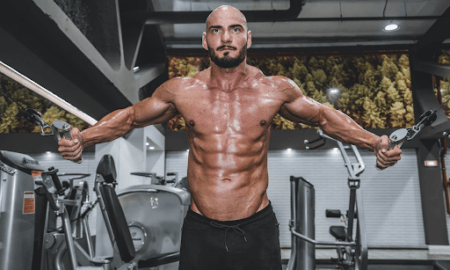
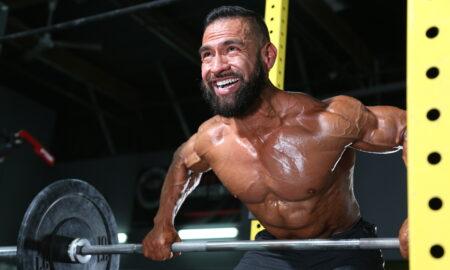
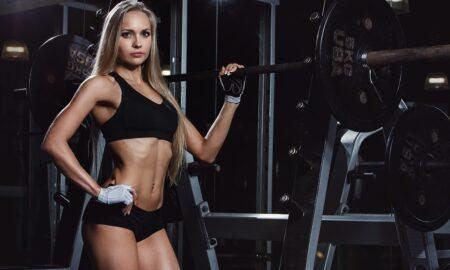
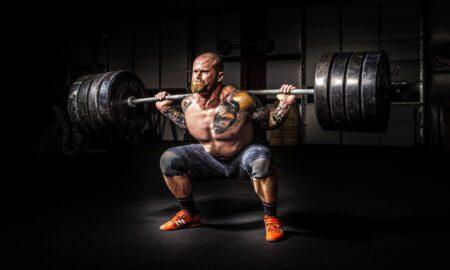
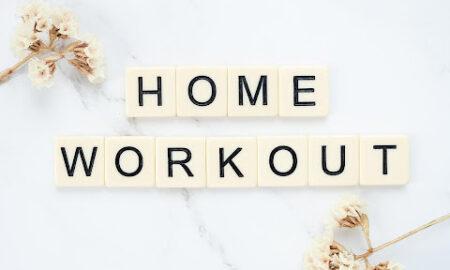

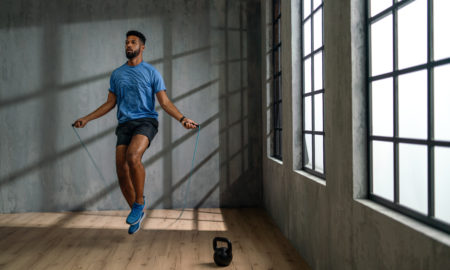
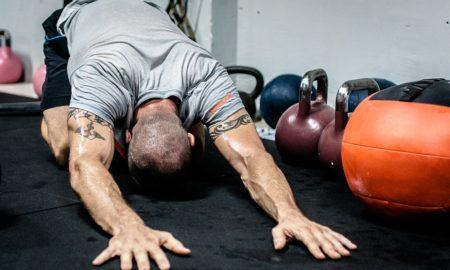
You must be logged in to post a comment Login